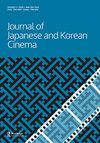论日本电影研究中的理论情结
引用次数: 0
摘要
摘要近来日本电影理论研究的激增,可以看作是对电影研究中的欧洲中心主义和日本研究中对理论的厌恶所做努力的一个方面。这也有助于学者思考东亚研究中的理论运用问题。然而,即使了解一个时代的电影理论可以帮助我们理解那个时代电影的背景,它也不应该简单地为外国理论家提供某种本土信息。正如日本电影理论只植根于一种古老的传统美学存在问题一样,也存在只将该理论视为欧美理论的问题。这可能导致理论腹语或投影翻译的形式,只会强化以欧洲为中心的理论的地缘政治。这可能是日本电影理论的一个特殊问题,因为它夹在日本的帝国野心和日本受到欧美新殖民主义影响之间。这种“理论情结”可以教会我们很多关于理论地缘政治的知识。将日本电影理论作为一种“次要电影理论”进行探索,最终甚至可能有助于“地方化理论”本文章由计算机程序翻译,如有差异,请以英文原文为准。
Theorizing the theory complex in Japanese film studies
ABSTRACT The recent surge in studies of Japanese film theory can be seen as an aspect of efforts to counter Eurocentrism in film studies and the aversion to theory in Japan studies. It could also help scholars think through the problem of utilizing theory in East Asian studies. Yet even if knowing the film theory of an era can help us understand the context of the films of that era, it should not simply serve as a sort of local informant for the foreign theorist. Just as there are problems in only rooting Japanese film theory in an age-old traditional aesthetics, there are issues in valuing that theory only to the degree it resembles Euro-American theory. That can lead to forms of theoretical ventriloquism or projected translations that only reinforce the geopolitics of theory centered in Europe. This can be a particular problem with Japanese film theory because it was caught between Japan’s imperial aspirations and Japan being subject to Euro-American neo-colonial influences. This “theory complex” can teach us much about the geopolitics of theory. Exploring Japanese film theory as a “minor film theory” may eventually even help “provincialize theory.”
求助全文
通过发布文献求助,成功后即可免费获取论文全文。
去求助
来源期刊

Journal of Japanese and Korean Cinema
Arts and Humanities-Visual Arts and Performing Arts
CiteScore
0.60
自引率
0.00%
发文量
16
期刊介绍:
Journal of Japanese and Korean Cinema is a fully refereed forum for the dissemination of scholarly work devoted to the cinemas of Japan and Korea and the interactions and relations between them. The increasingly transnational status of Japanese and Korean cinema underlines the need to deepen our understanding of this ever more globalized film-making region. Journal of Japanese and Korean Cinema is a peer-reviewed journal. The peer review process is double blind. Detailed Instructions for Authors can be found here.
 求助内容:
求助内容: 应助结果提醒方式:
应助结果提醒方式:


